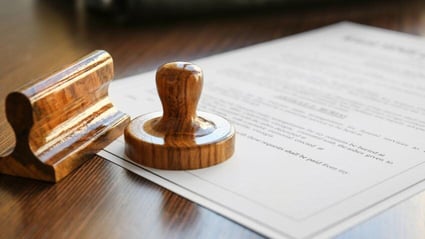

When relocating or working overseas, expats frequently encounter the difficulty of obtaining international recognition for their official documents. Apostille service is required at this point. A form of authentication granted to documents by the Hague Convention of 1961 is known as an apostille. It facilitates the verification of documents throughout the member states of the convention. An apostille, in essence, is a specialized seal affixed by a designated authority to validate the authenticity of a document, thereby ensuring its universal acceptance among all Hague Convention member states without the need for additional legalization processes.
The Hague Apostille Convention facilitates cross-border document authentication by eliminating the embassy or consular legalization requirement. Provided that both the issuing and receiving countries are members of the Convention, this system is currently operational in 126 countries, facilitating extensive recognition and approval of apostilled documents.
For expats dealing with documents issued in the United Kingdom, it is important to understand how to obtain an apostille for various documents such as birth certificates, marriage certificates, educational degrees, or business documents. This ensures that your paperwork is legally recognized in other Hague Convention countries.
Joining the Apostille Convention on August 21, 1964, the United Kingdom of Great Britain and Northern Ireland expedited the document verification procedure for using UK documents abroad. With this convention, a recognized UK authority will issue an apostille certificate, typically attached as an "allonge" to the original document, confirming its authenticity for international use.
If you have been asked to provide a UK document for use abroad, you may need to have it officially legalized. This process is handled by the UK Legalisation Office, which is tasked with verifying the authenticity of documents.
When you submit a document for legalization, the Legalisation Office will check whether any signatures, stamps, or seals on the document match those in their records. If a match is found, the document is legalized by affixing an 'apostille'—a stamped official certificate. This certifies the document for international use, ensuring it is recognized officially in foreign countries.

Expats must obtain an apostille for UK documents to ensure their legal recognition in other Hague Convention countries
Before legalizing your UK documents, it’s important to understand what documents are eligible for this process. Documents that can be legalized include those issued by a court with a wet ink seal, certificates from public registries (like birth, marriage, or death certificates), or documents issued by government departments and signed by an official, such as a tax registration confirmation. Additionally, medical certificates signed by registered doctors can also be legalized. You can access the full list of documents eligible for apostille certification in the UK here.
Apart from these, you can have other documents legalized if they have been certified by a recognized UK public official, such as a notary or solicitor. Documents falling within this category can be powers of attorney, contracts, qualification certificates, or even certified copies of identity documents like driving licenses or passports. This list isn’t exhaustive, but it gives a good idea of what can be submitted for legalization.
To ensure your documents meet the requesting party's specific requirements, you should contact them directly. Confirm whether they require original documents or if certified copies are acceptable. Additionally, some documents may need to be signed by a specific authority, such as a UK notary or solicitor.